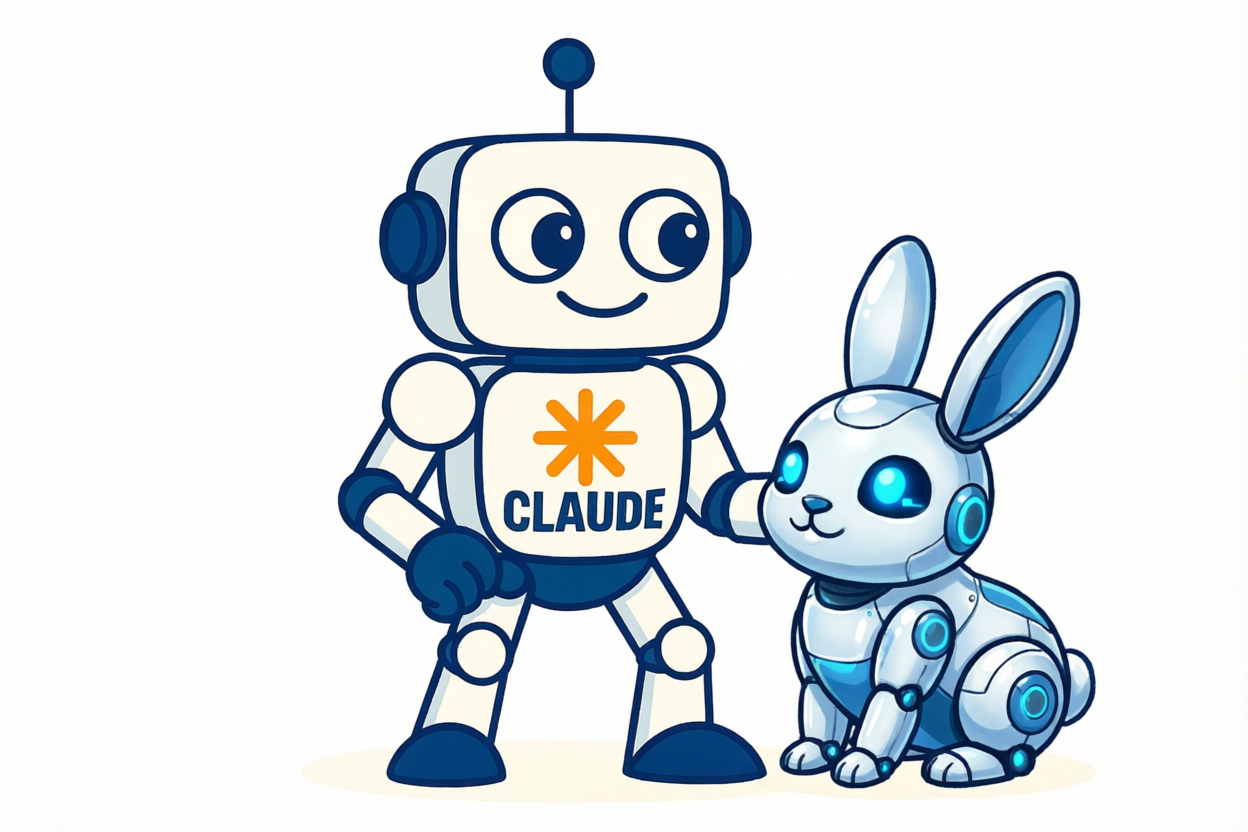MCP Servers Beyond Code: Research-Driven Development with Context7 and Terraform

Last week, I wanted to demonstrate the research capabilities of MCP servers, so I decided to analyze the AWS Backup Terraform module ecosystem. As the author of one of the modules in this space, I was curious: can MCP servers provide objective, comprehensive market analysis and competitive intelligence?
I used two specialized MCP servers for this research:
- Context7: Retrieves up-to-date, version-specific documentation and code examples directly from libraries and frameworks, eliminating outdated or hallucinated information
- Terraform MCP Server: Provides direct access to the Terraform Registry API, enabling comprehensive searches for modules, providers, and their metadata including download counts and version history
The result? A detailed analysis that showcased not just the modules’ capabilities, but the power of MCP servers for research-driven development. Here’s how these tools are revolutionizing the way we analyze and understand technology ecosystems.
🔍 The Research-First Approach
Traditional Workflow: Manual and Time-Consuming

The traditional approach often leads to:
- Manual browsing of https://registry.terraform.io/
- Outdated documentation causing confusion
- Limited information for decision-making
- Costly refactoring when limitations are discovered
MCP Server Workflow: Automated and Comprehensive

The MCP server approach delivers:
- Automated searches across the entire Registry
- Up-to-date documentation for all candidates
- Real adoption metrics and download counts
- Comprehensive feature analysis before coding
- Data-backed decisions with confidence
🎯 Real-World Case Study: AWS Backup Module Ecosystem Analysis
To test the research capabilities of MCP servers, I decided to analyze the AWS Backup Terraform module landscape. As the maintainer of the lgallard/backup/aws module, I wanted to see if MCP servers could provide objective market analysis and help understand the competitive positioning within this ecosystem.
The Research Query
Using Claude Code with connected MCP servers, I asked:

The Analysis Process
The MCP servers immediately went to work:
- Terraform MCP Server: Searched the Terraform Registry for all AWS Backup modules
- Context7: Retrieved up-to-date documentation for each candidate
- Comparative Analysis: Generated feature matrices and maturity assessments
- Market Analysis: Provided objective positioning and competitive insights
The Results: Comprehensive Module Comparison
The analysis revealed five leading AWS Backup modules with detailed breakdown:
| Module | Downloads | Version | Key Features | Maturity Score |
|---|---|---|---|---|
| cloudposse/backup/aws | 1.8M | 1.1.0 | Advanced vault lock, Multiple backup rules, Cross-region copy, Comprehensive tagging, Audit framework support | ⭐⭐⭐⭐⭐ |
| lgallard/backup/aws | 1.1M | 1.0.2 | Multiple plans support, Organizations policy, Audit framework, Reporting integration, Windows VSS backup | ⭐⭐⭐⭐⭐ |
| umotif-public/backup/aws | 29K | 1.6.0 | SNS notifications, Basic vault management, Simple configuration, External vault support | ⭐⭐⭐ |
| boldlink/backup/aws | 14K | 1.0.1 | IAM role management, Resource assignments, Modular vault support, Basic features only | ⭐⭐⭐ |
| USSBA/backup-plans/aws | 10K | 9.0.0 | Cross-region backup, Government-focused, Simplified configuration, Limited customization | ⭐⭐⭐ |
Detailed Feature Analysis
The MCP servers provided comprehensive capability breakdowns:

Why this module?

Market Analysis Results: Competitive Positioning
The research revealed interesting insights about the competitive landscape:
🏆 Market Leaders: cloudposse/backup/aws and lgallard/backup/aws
Key findings from the analysis:
- Feature Parity: Both leading modules offer comprehensive enterprise features
- Adoption Metrics: Similar download counts (1.8M vs 1.1M) indicate healthy competition
- Differentiation: lgallard module excels in Organizations policy and Windows VSS support
- Market Position: Clear separation between enterprise-grade modules and basic alternatives
Final recommendation

🛠️ Setting Up MCP Servers for Research
Now that we’ve seen the power of MCP servers for competitive analysis and market research, let’s get them configured in your development environment. While I used Claude Code for this demonstration, MCP servers work with any AI tool that supports the Model Context Protocol—including Claude Desktop, Cursor, VS Code with Copilot, and other MCP-compatible applications. The setup process is straightforward, and once configured, these servers provide instant access to up-to-date documentation and registry data regardless of your chosen tool.
Context7 MCP Server Setup
For Claude Code:
# Install Context7 MCP server
npm install -g @upstash/context7-mcp
# Add to Claude Code MCP configuration
claude config mcp add context7 npm @upstash/context7-mcp
For Cursor:
// Add to Cursor's MCP settings
{
"mcpServers": {
"context7": {
"command": "npx",
"args": ["@upstash/context7-mcp"]
}
}
}
Terraform MCP Server Setup
For Claude Code:
# Install Terraform MCP server
claude config mcp add terraform-server docker hashicorp/terraform-mcp-server
For Cursor:
// Add to Cursor's MCP configuration
{
"mcpServers": {
"terraform-server": {
"command": "docker",
"args": ["run", "-i", "--rm", "hashicorp/terraform-mcp-server"]
}
}
}
Verification and Testing

Once configured, verify your MCP servers are connected:
# In Claude Code
/mcp list
# In Cursor
Check MCP status in settings > Tools > MCP Servers
📊 Research Workflow Best Practices
1. Start with Broad Discovery
Using Terraform MCP server, find all available modules for [technology/service].
Include download counts and latest versions.
2. Deep-Dive Documentation
Using Context7, compare the documentation quality and feature sets of the
top 3 candidates. Focus on [specific requirements].
3. Generate Comparison Matrices
Create a detailed comparison table including features, maturity indicators,
and suitability for [use case]. Provide a clear recommendation.
4. Validate with Current Information
The power of MCP servers lies in their real-time data access:
- Context7 pulls the latest documentation versions
- Terraform MCP accesses current registry statistics
- No hallucinated or outdated information
🔬 Advanced Research Techniques
Multi-Criteria Decision Analysis
Ask your MCP-enabled AI assistant to:
Evaluate these modules using weighted criteria:
- Feature completeness (40%)
- Community adoption (25%)
- Documentation quality (20%)
- Maintenance activity (15%)
Provide scores and final ranking.
Ecosystem Integration Research
Using Context7, research how [chosen module] integrates with:
- Existing Terraform providers
- CI/CD pipelines
- Monitoring solutions
- Security frameworks
Cost and Performance Analysis
Using Terraform MCP server, analyze the resource efficiency and cost
implications of each module approach.
🎯 When to Use MCP Servers for Research
Ideal Scenarios ✅
- Competitive analysis - Understanding market positioning and feature gaps
- Technology stack decisions - Comparing frameworks, libraries, or tools
- Market research - Evaluating community adoption and trends
- Architecture planning - Understanding integration patterns and limitations
- Compliance research - Finding modules that meet specific regulatory requirements
Less Suitable Scenarios ⚠️
- Simple, well-known implementations - Basic setups with obvious choices
- Time-critical prototyping - When speed matters more than optimization
- Internal tooling research - Limited public documentation availability
💡 Research ROI: Market Intelligence Benefits
The AWS Backup module ecosystem analysis took 20 minutes and delivered:
Market Intelligence:
- Competitive positioning insights - Understanding where modules stand in the market
- Feature gap analysis - Identifying opportunities for improvement
- Adoption trend analysis - Real download metrics and community engagement
Research Quality Improvements:
- Objective, data-driven analysis with standardized comparison criteria
- Up-to-date information avoiding outdated documentation pitfalls
- Comprehensive feature mapping across the entire ecosystem
- Clear market positioning based on actual usage and features
🚀 The Future of Research-Driven Development
MCP servers represent a fundamental shift in how we approach technology research and competitive analysis. Instead of intuition-based or anecdotal insights, we can now:
- Access real-time, accurate information from multiple sources simultaneously
- Generate comprehensive market analyses with objective criteria
- Conduct competitive intelligence backed by current adoption metrics
- Identify market opportunities through thorough ecosystem analysis
The research phase isn’t just about gathering information—it’s about building comprehensive market understanding that informs product strategy, competitive positioning, and technology decisions.
🧠 Final thoughts
The future belongs to developers and teams who make informed decisions backed by real-time, accurate market data. MCP servers make this approach not just possible, but practical for everyday research and strategic work.
📚 References
- Context7 MCP Server - Up-to-date documentation retrieval for developers
- Context7 About - Platform mission and features overview
- Terraform MCP Server - HashiCorp’s official Terraform MCP implementation
- lgallard/backup/aws Module - The winning AWS Backup module from our research
- MCP Protocol Specification - Official Model Context Protocol documentation




